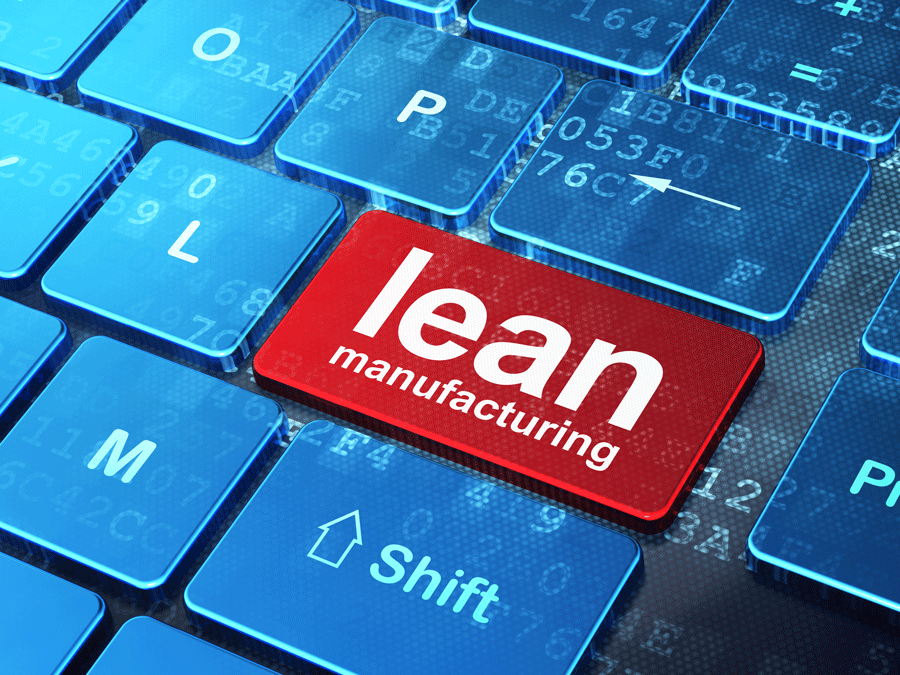 With the days of China being a low-cost country long over, its manufacturing is at risk of being squeezed between innovation leaders on the one side and low-cost competitors on the other.
With the days of China being a low-cost country long over, its manufacturing is at risk of being squeezed between innovation leaders on the one side and low-cost competitors on the other.
China is also facing rapidly rising labour costs, making steep productivity increases a question of survival. There is much discussion about state-sponsored initiatives toward automation and digitalisation of production but this requires a foundation in terms of operational excellence, which in most industries is simply not a given. A back-to-basics approach should be embraced, say Dr Laurenz Awater and Grant Yang of INNOVA Management Institute (Shanghai), focussing on exploiting the benefits of a lean enterprise, a vast potential that is still untapped by many manufacturing companies.
Generally speaking, the introduction of lean concepts and tools initially leads to impressive results as they are extremely effective if applied professionally. Initial successes often prove to be difficult (or hard) to sustain, however. Experience shows that to achieve sustainability a lean culture needs to be developed, a culture in which organisational members constantly engage in continuous improvements to processes and work practices.
A lean conversion is a change initiative of transformational magnitude and, as such, doomed to fail if the cultural dimension of change is not addressed. You cannot build a lean culture by copying the Toyota way, corporate cultures are unique. What is possible is to embrace lean values and lean principles and gradually re-build and adapt your culture and align people in your organisation around those values and principles, without throwing overboard what is highly valuable and time-tested about your existing culture.
A lean culture can only flourish within the wider context of an environment that encourages and facilitates empowerment—encompassing self-empowerment—and this is exactly what international experts miss most about workplace culture in China. To change, workplace culture leadership practices have to be re-learnt. New behaviours, which can be the complete opposite of existing ones, have to become habits. This requires a dramatic shift in mind-set and in many cases completely new ways of thinking. Leaders have to re-think what leadership actually means and re-define their role in a process-driven enterprise with high levels of decentralisation of decision-making authority. They have to re-think what drives employee motivation, what performance actually is and, ultimately, how to define and reward it.
Of greatest importance for the development of a lean culture is the interaction between lean leaders—production supervisors, production managers, or shift leaders—and operators. The most capable of Chinese leaders tend to be highly directive, task-focused, result-driven and action-orientated, while still having to learn how to engage, enable and empower. What is needed is a fundamental shift in the relationship between leaders and followers – from the expectation of blind followership to greater team orientation. Today, the dynamics of the interaction between leaders and followers on the shop floor are merely transactional, shaped by the dynamics of the carrot-and-stick approach, by reward and punishment, resulting in a lack of initiative, decreased motivation and poor learning. Without leaders becoming strongly team-orientated and acquiring more sophisticated communication and influencing skills the potential for creative solutions cannot be adequately tapped and the quality of ideas for process improvements—a key indicator for the lasting success of your lean conversion—is likely to remain low.
“Culture and leadership are two sides of the same coin – one cannot understand one without the other.”
—Edgar Schein
A lean organisation is a learning organisation that calls for the implementation of the team concept and the development of transformational leaders at all levels. A milestone can be reached by developing leaders who are exhibiting a coaching style of leadership, have a passion for developing others and understand that empowering individuals and teams is essential to bring about the results they are expected to deliver.
 On a daily basis, leaders involved in manufacturing experience that the traditional way of leading people—the autocratic command-and-control style of leadership—is no longer accepted nor effective, especially where the younger generation is concerned. Many leaders are open-minded enough to re-think their approaches but are still far from having adopted transformational leadership practices.
On a daily basis, leaders involved in manufacturing experience that the traditional way of leading people—the autocratic command-and-control style of leadership—is no longer accepted nor effective, especially where the younger generation is concerned. Many leaders are open-minded enough to re-think their approaches but are still far from having adopted transformational leadership practices.
A lean conversion must begin with the people, with identifying, developing and empowering lean leaders and by training them how to bring other staffers on board. A lean culture constitutes a new way of thinking and working and takes years to perfect. Reinforcement of the new ways of thinking and working is essential, a constant emphasis on how we think and why, how we do things and why, to gradually shift attitudes and mind sets and avoid staff falling back into old habits and routines. That is why enterprises that have successfully built a lean culture are relentless about training and coaching staff and place an equally strong emphasis on people, purpose and processes.
Resistance to a lean conversion typically comes from mid-level management – generally supposed to be the engine for change implementation. In order to deal with resistance in an appropriate way one has to understand its root causes: in China it results mainly from a fear of diminished status, power and influence (due to a reduction in the number of subordinates, for example) and the fear of losing face: that is, Chinese managers might be anxious that if the lean conversion shows positive results, it would be indicative of them having previously done a poor job.
Top management has to communicate the need for change, create a sense of urgency, describe lean transformation as the way towards achieving excellence—as a way of moving from good to great—and develop a commonly shared vision of a desirable future – for example, by creating and working in a world-class factory that everybody has reason to be proud of. Senior managers should engage in coaching-style change conversations to overcome anxieties, instil positive thinking and create energy around inspiring goals. These coaching conversations can prove to be instrumental in helping mid-level managers realise that proactively embracing and co-creating change is the best strategy for coming out on top and creating additional value for the organisation. Last but not least, mid-level managers should be reassured that qualifying themselves as lean leaders is a smart step in their career and that their contributions will be acknowledged and rewarded.
It is important to systematically build up change readiness to give the lean conversion a smooth start. Senior management should have a roadmap at hand for rolling out the lean conversion while planning for the corporate culture change. Gradually shifting thinking and behavioural patterns, re-defining and clarifying roles and responsibilities, and aligning the organisation at all levels—from top- to mid-level management and the shop floor—around lean thinking and lean habits means to embark on a longer journey of change, which must be guided by a long-term philosophy, a clear vision and unwavering dedication. The most common mistake is that great emphasis is placed upon the introduction of lean concepts and tools in operational processes but less so on people development and little emphasis on culture change. While such strategies work well with incremental changes, for a change initiative of transformational dimensions they are a recipe for failure.
Dr Laurenz Awater is managing director of the INNOVA Management Institute (Shanghai), a consulting, training and coaching company delivering people and organization development solutions in the areas of leadership, innovation, change and corporate culture. Grant Yang, senior consultant at the INNOVA Management Institute, is a lean expert and team coach with more than twenty years of professional experience in lean conversion, Kaizen and six sigma project implementation. They can be reached at info@innova-institute.com.cn.


Recent Comments